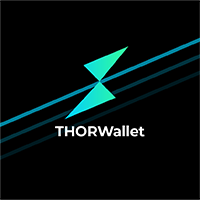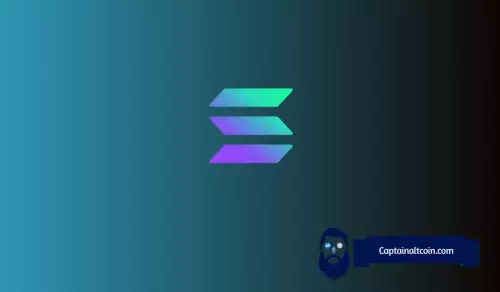 |
|
 |
|
 |
|
 |
|
 |
|
 |
|
 |
|
 |
|
 |
|
 |
|
 |
|
 |
|
 |
|
 |
|
 |
|
著名なイーサリアム擁護者であり教育者であるアンソニー・ササノ氏は、2024年12月30日に、ビットコインの分散化が進んでいないと考える理由について自身の見解を語った。

Prominent Ethereum advocate and educator Anthony Sassano shared his views on Dec. 30, 2024, regarding why he believes Bitcoin is less decentralized than Ethereum.
著名なイーサリアム擁護者で教育者のアンソニー・ササノ氏は、2024年12月30日に、ビットコインがイーサリアムほど分散化されていないと考える理由について自身の見解を共有した。
In a post on social media platform X, Sassano detailed several points comparing the two blockchain networks. Sassano began by stating that Bitcoin’s reliance on Bitcoin Core — the dominant implementation of the protocol — reflects a lack of client diversity, making Bitcoin Core effectively the protocol’s specification. He compared this to Ethereum, which has over ten independent clients supported through funding by the Protocol Guild, a collective initiative for Ethereum’s Layer 1 research and development.
サッサノ氏はソーシャルメディアプラットフォームXへの投稿で、2つのブロックチェーンネットワークを比較するいくつかの点について詳しく説明した。サッサノ氏はまず、ビットコインがプロトコルの主要な実装であるビットコインコアに依存していることは、クライアントの多様性の欠如を反映しており、ビットコインコアが実質的にプロトコルの仕様になっていると述べた。同氏はこれをイーサリアムと比較した。イーサリアムには、イーサリアムのレイヤー1研究開発のための共同イニシアチブであるプロトコル・ギルドによる資金提供を通じて支援された10社以上の独立系クライアントがいる。
Highlighting centralization in Bitcoin mining, Sassano noted that two KYC-compliant mining pools in the U.S. dominate Bitcoin’s hash rate. He went on to say that Bitcoin’s proof-of-work mining mechanism inherently centralizes due to economies of scale, rendering at-home mining economically unviable. In contrast, he claimed that Ethereum’s proof-of-stake system avoids similar issues, lacking the same economies of scale. He also highlighted that Ethereum allows users to stake at home profitably, particularly through services like Rocket Pool and Obol Collective, which reduce the minimum staking requirement.
サッサノ氏はビットコインマイニングの集中化を強調し、米国の2つのKYC準拠マイニングプールがビットコインのハッシュレートを支配していると指摘した。同氏は続けて、ビットコインのプルーフ・オブ・ワーク・マイニング・メカニズムは規模の経済により本質的に集中化されており、在宅マイニングは経済的に実行不可能になっていると述べた。対照的に、イーサリアムのプルーフ・オブ・ステーク・システムは同様の問題を回避しており、同様の規模の経済を欠いていると同氏は主張した。同氏はまた、イーサリアムを使用すると、特に最小ステーキング要件を引き下げる Rocket Pool や Obol Collective のようなサービスを通じて、ユーザーが自宅で利益を上げてステーキングできることを強調しました。
Discussing long-term security, Sassano expressed concerns about Bitcoin’s sustainability as mining rewards diminish over the next two to three halvings. He suggested that this could lead to further mining centralization and vulnerabilities, opening up potential attacks. He contrasted this with Ethereum’s “tail issuance,” designed to maintain a sustainable security budget. Ethereum also has mechanisms to generate more fee revenue and offset issuance through fee burning.
サッサノ氏は長期的な安全性について議論し、マイニング報酬が今後2~3回の半減期で減少するため、ビットコインの持続可能性について懸念を表明した。これにより、さらなるマイニングの集中化と脆弱性が生じ、潜在的な攻撃が可能になる可能性があると同氏は示唆しました。同氏はこれを、持続可能なセキュリティ予算を維持するために設計されたイーサリアムの「テール発行」と対比した。イーサリアムには、より多くの手数料収入を生み出し、手数料燃焼を通じて発行を相殺するメカニズムもあります。
Sassano claimed that Bitcoin’s core developer base is dwindling, with fewer than five active contributors, while Ethereum benefits from a larger pool of over 170 active core developers and researchers.
サッサノ氏は、ビットコインのコア開発者ベースは減少しており、アクティブな貢献者は5人未満となっているが、イーサリアムは170人以上のアクティブなコア開発者や研究者からなるより大きなプールから恩恵を受けていると主張した。
He also commented on the differing social dynamics of the two networks. Bitcoin’s community, he said, is unified under the “digital gold” narrative, which he argued limits diversity of thought. He believes that Ethereum’s social layer, which lacks a singular guiding narrative, allows for broader experimentation and innovation.
彼はまた、2 つのネットワークの異なる社会力学についてもコメントしました。同氏は、ビットコインのコミュニティは「デジタルゴールド」という物語の下で統一されており、それが思想の多様性を制限していると主張した。同氏は、イーサリアムのソーシャル層には単一の指導的な物語が存在しないため、より広範な実験と革新が可能になると信じている。
Sassano pointed to Ethereum’s response to the U.S. Office of Foreign Assets Control (OFAC) sanctions on Tornado Cash as a test of its decentralization. He noted Ethereum’s efforts to enhance censorship resistance through research into mechanisms like inclusion lists, also known as FOCIL. Bitcoin, he stated, has faced sanctions on a smaller scale, targeting specific addresses, and he described China’s mining ban as the closest comparable test of Bitcoin’s decentralization.
サッサノ氏は、トルネードキャッシュに対する米国外国資産管理局(OFAC)の制裁に対するイーサリアムの対応が分散化の試金石であると指摘した。同氏は、FOCILとしても知られる包含リストなどのメカニズムの研究を通じて検閲耐性を強化するイーサリアムの取り組みに言及した。同氏は、ビットコインは特定のアドレスを対象とした小規模な制裁に直面していると述べ、中国のマイニング禁止はビットコインの分散化に最も近い類似の試練であると述べた。
Sassano clarified that his analysis was not intended as criticism but as a candid comparison of the two blockchain networks based on his observations.
サッサノ氏は、自身の分析は批判を目的としたものではなく、自身の観察に基づいた 2 つのブロックチェーン ネットワークの率直な比較を目的としていると明言しました。
免責事項:info@kdj.com
提供される情報は取引に関するアドバイスではありません。 kdj.com は、この記事で提供される情報に基づいて行われた投資に対して一切の責任を負いません。暗号通貨は変動性が高いため、十分な調査を行った上で慎重に投資することを強くお勧めします。
このウェブサイトで使用されているコンテンツが著作権を侵害していると思われる場合は、直ちに当社 (info@kdj.com) までご連絡ください。速やかに削除させていただきます。
-

-

-

-

-

-

- ソラナ ETF と取引: 制度の波に乗る
- 2025-11-08 15:30:00
- ソラナETFは、機関投資家の関心とDeFiイノベーションに後押しされて急増している。これはSOL取引の新たな境地でしょうか?
-

-

-



















![グラフ価格予測 [GRT Crypto Price News Today] グラフ価格予測 [GRT Crypto Price News Today]](/uploads/2025/11/07/cryptocurrencies-news/videos/690d4df44fe69_image_500_375.webp)










































